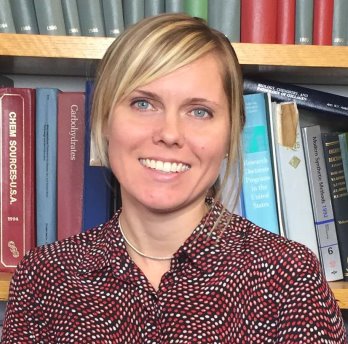
Speaker: Dr. Victoria Cambell
Affiliation: Harvard University
Self-assembly: from spintronics to programmable matter
Self-assembly processes are common throughout nature and technology. Complex three-dimensional (3D) structures provide essential function. Fascinating opportunities exists for 3D structures as components in devices used in, for example, data storage and as sensors. This talk describes how we can use self-assembly to construct (i) molecular spintronic devices, and (ii) 3D printed structures. The talk is divided into two sections. First, I will describe the design and synthesis of self-assembled magnetic molecules. I will show how these molecules interact with magnetic surfaces for the construction of molecular spintronic devices. Controlling the interface poses a challenge when constructing molecular spintronic devices. I will show that it is possible to modulate the magnetic response of a system with a molecule and control the interaction between the molecule and the surface through the interface. Second, I will show how we can use self-assembly and structural instabilities to construct 3D structures from 2D designs using a 3D printer. The fabrication of 3D structures often requires multiple time-consuming steps. I show that we can print simple 2D patterns that will change into desired 3D structures via mechanical buckling and elastic deformations.
Biography:
Victoria E. Campbell is concurrently a Visiting Scholar at Harvard University in Professor George M. Whitesides’ group, and a Chargée de Recherche 1ère class with the French Center for Scientific Research (CNRS) at the University of Paris-Sud. Her group is dedicated to the study of self-assembled molecules that display Ising-type magnetic anisotropy, and to the fabrication of hybrid nanojunctions starting form these molecules. Dr. Campbell received a B.A. in Chemistry from New College of Florida, a M.S. in Materials Science from the University of Wisconsin-Madison, and a Ph.D. in Chemistry from the University of Cambridge, UK. She then moved as a CNRS post-doctoral scholar to ESPCI-ParisTech for one year. Since October 2011, she has held a permanent independent academic position with the CNRS at the University of Paris-Sud. More information on her research activities may be found at the following link: http://scienceido.com/vcampbell/.
Date/Time:
Date(s) - Apr 06, 2017
10:30 am - 12:00 pm
Location:
2101 Engineering V
420 Westwood Plaza Los Angeles CA 90095
